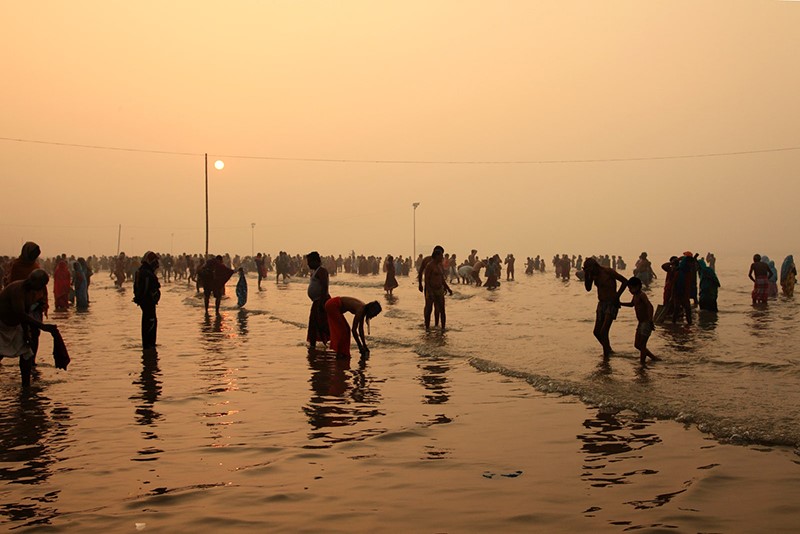– Joaquim Magalhães de Castro
In the place where the fugitives of Hugli sought refuge, the island of Saugar, a Hindu festival was held every year during which the most devout, in an extreme gesture of sacrifice to their thirsty gods, launched themselves at the sharks so that they could devour them . This type of practice has been portrayed several times in the pages of Peregrination by Fernão Mendes Pinto.
On this island where no one dared to live in fear of the incursions of the Portuguese rebels from Dianga, the people of Hugli found safe haven. Good quality water abounded and fruit trees were plentiful. A few temples, visited once a year by pilgrims, presented themselves as the only visible constructions and in strategic terms the site was excellent – no army coming from land could attack it.
From the commercial point of view, there were advantages: Saugar was a short distance from the village of Hijli, in front of which was wrecked the ship where Friar Sebastião Manrique was traveling, en route to Hugli.
Weighing all the prerogatives, Captain Manuel de Azevedo decided to transform the main temple into a fortress, and for that purpose the slaves were put to work. The new “promised land” was found: there they could accommodate themselves; there they could keep trading their goods …
There was, however, a small snag. It is true that Saugar was 250 miles west of Dianga and, therefore, outside the realms of Thiri-thu-dhamma, king of Arrakan. However, and taking into account the increasingly daring Arracanese incursions and the longer geographical reach of its maritime fleet, led by the Portuguese mercenaries from Dianga, the island would soon fall into its possession.
Prudence advised that Thiri-thu-dhamma be notified – thus rendering it disguised but convenient vassalage – so as not to suffer unpleasant surprises in the future. Once again, the thorny diplomatic task would fall on João Cabral’s shoulders. It was decided: the priest should go and ask permission from the king of Arrakan so that everyone could continue to live in Saugar and, perhaps, transform it into a new Sandwip. However, news of the Mughal attack on Hugli had already reached Thiri-thu-dhamma’s ears. And as he intended to establish friendly relations with the Portuguese authorities in Goa, he soon envisioned a way for them to be indebted to him.


 Follow
Follow


